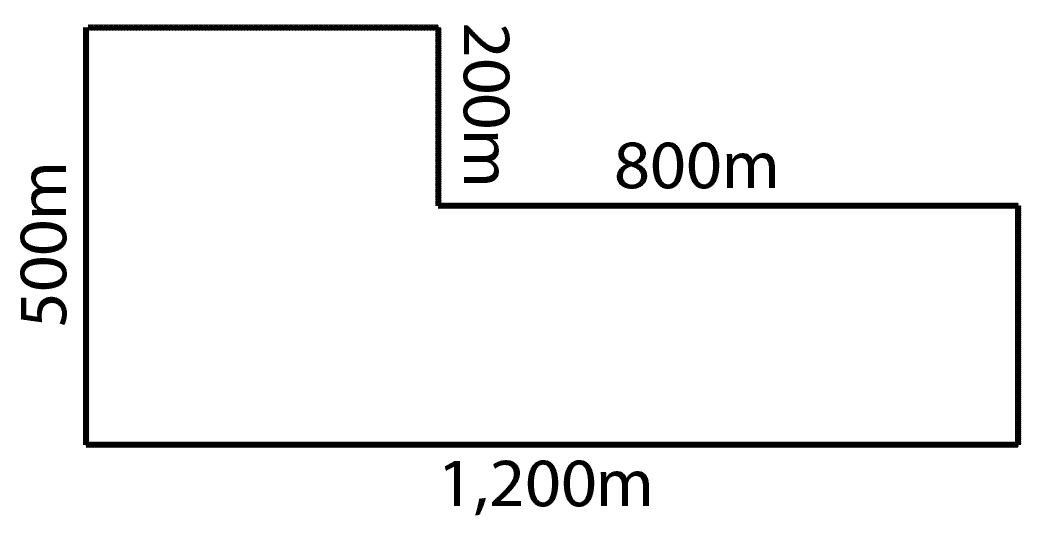Discover how to join the GCHQ Security Service with this comprehensive career guide “How to Become a GCHQ Intelligence Analyst”. Our 214-page guide will walk you through your entire application process and provide you with insider tips to help you pass each stage.
How to Become a GCHQ Intelligence Analyst
The world around us is more dangerous than ever before. England’s threat level is set at an unprecedented high, and this shows no sign of abating. Conflicts in the Middle East, along with the rapid improvement of technology in the past decade, mean that Britain is at risk from terrorists and home-grown criminals alike. So, how can we stop these people, and protect our citizens? The answer is via national security organisations, such as GCHQ.
GCHQ (Government Communications Headquarters) is a British intelligence agency that operates primarily online, and in conjunction with organisations such as MI5. Their main body of work consists of tracking down and monitoring criminals, such as paedophiles or suspected terrorists. Given the rise of new technology, GCHQ are also fundamental in preventing hacking attacks that could jeopardise the security of Britain. In computing terms, GCHQ are Britain’s foremost firewall against digital attacks, and also contribute hugely to the anti-terror movement.
One of the most essential roles in GCHQ is that of an intelligence analyst. Intelligence analysts are responsible for identifying international threats to the UK. But what really is an intelligence analyst, and how do you become one?
Download our guide now and discover how to become a GCHQ intelligence analyst.
WHAT IS A GCHQ INTELLIGENCE ANALYST?
As we have mentioned, intelligence analysts are responsible for identifying international threats to the UK.
In order to do this, they use a range of analytical tools and devices, including the most up-to-date technology. Once a potential threat has been identified, GCHQ intelligence analysts work in conjunction with other employees in GCHQ, MI5 and sometimes MI6, to determine, deal with and detain the perpetrator.
If you need an example of how effective this is, just think about the following. Given the increase in terrorism in the last 20 years, how many attacks have actually been committed on British soil? Since 2005, Britain has been largely untouched by terrorism (despite many attempts) and this is down to the fantastic work of national intelligence and security services.
In order to track down terrorists, GCHQ intelligence analysts might use any number of methods at their disposal. This could include:
- Tracing IP addresses.
- Tracking mobile numbers.
- Working with other intelligence agencies, such as MI5 or MI6.
- Intercepting and analysing communications between suspected or known threats.
- Using past and current data to ascertain links between different suspects.
If you think this sounds difficult, that’s because it is. In order to become a GCHQ intelligence analyst, you will need to pass a number of different stages, and meet a particular set of eligibility criteria. The different stages are as follows:
Stage 1: Application Form.
Stage 2: Online Tests
Stage 3: Telephone Interview
Stage 4: Assessment Centre
Stage 5: Interview
Stage 6: Further Vetting
Stage 7: Final Interview.
GCHQ ELIGIBILITY CRITERIA
In order to become a GCHQ Intelligence analyst, there are also a number of criteria that you’ll have to meet. These are as follows:
- You must be a British citizen, or in the process of applying to become one.
- You must be aged 18 years old or over.
- You must have lived in the UK for the last 10 years, with the exception of serving overseas with the armed forces, representing the government in overseas matters, studying abroad or living abroad with parents.
- At least one of your parents must be a British citizen, or have demonstrable/strong links to the UK.
GCHQ may reject you, if:
- You are being treated for an addiction, such as alcoholism, or have been receiving treatment for this in the last year.
- You have used Class A drugs, such as ecstasy, in the last year.
- You have used Class B or C drugs, such as cannabis, in the last year.
- You are currently bankrupt, or subject to an Individual Voluntary Agreement.
- You have ever suffered from psychotic illness or episodes, or bi-polar.
When applying to GCHQ, you will be subject to extremely thorough background checks, in order to ascertain that you are a suitable person for the role. If this list seems fairly limited, don’t be fooled.
Remember that the people who are applying for the same role as you will generally be extremely qualified and have a very high standard of education/ work experience. While a degree or higher isn’t an official requirement, extra qualifications such as these will add hugely to your application. The assessors will look far more favourably upon candidates who can show both educational and work-based skills, meaning that you could really struggle to compete against those who are more qualified than you. In order to give yourself the best chances of success, you will need to go as far as you can to become as qualified as you can, before applying to GCHQ.
Finally, it goes without saying that you will need to be someone who can work discreetly, and maintain a high level of secrecy. Similarly to MI5, GCHQ is an extremely private organisation that relies on maximum secrecy in order to achieve its goals. Given their importance to national security, employees of GCHQ cannot disclose their role to anyone outside of close friends and family. A breach of this would put not only themselves and their family in danger, but the general British public.
Now, let’s move onto the selection stages themselves.

GCHQ Online Test
The next stage of the process is an online test. The purpose of this test is to act as a sifting mechanism, to filter out unsuitable candidates from the process.
Working for GCHQ is a very popular choice of career, but unfortunately only the most elite candidates are selected. This means that by the time they arrive at this point, GCHQ have a huge number of candidates to sort through. One of the best and most efficient ways to determine the strongest candidates from the weakest, is via an online sifting test.
The online test could take one of 3 forms:
- Situational Judgement.
- Verbal Reasoning.
- Numerical Reasoning.
Below we have outlined what each of these tests involve, and provided you with a sample question from each.
A situational judgement test is a written/online multiple choice assessment, which is designed to determine how you react in certain situations. As you might have guessed, the test examines your ability to judge a situation, and then make good decisions based on the information that you have been presented with. There are technically no right or wrong answers in a situational judgement test, but there are answers which match with the GCHQ values and behavioural expectations.
The second test that you might be asked to take, is a Verbal Reasoning test. A Verbal Reasoning test will assess how well you can ascertain key information, from large passages of text. The questions will require you to draw logical or inarguable conclusions from the passage. With this in mind, it’s important to remember that you must base your answers only on the information from the passage you have been given. For example, if you were asked a question based on a passage that is pro something you disagree with, you must not let your personal opinions impact upon the answer. Do not rely on any previous knowledge or personal experiences with the subject, as this could easily lead you to the wrong conclusion.
The key to Verbal Reasoning is to make sure you read the whole passage carefully, before you begin the process of gleaning key information from the text. Both of these elements are extremely important if you wish to succeed.
To give you a better idea of what to expect, here is a sample Verbal Reasoning Question:
Question 1
Diving (or flopping as it’s known in the USA) is the practice of faking or exaggerating injury in football, in order to con or cheat the referee – thereby gaining an advantage. Whether that advantage is a free kick or a penalty, the result is irrelevant. The bottom line is that this has to stop. The phrase ‘football is a man’s game’ is horrendously outdated, but there is some truth behind it. Not only is diving cheating, but it slows the game down. It’s embarrassing to watch perfectly healthy athletes pretending to be hurt, and it’s even worse when your team suffers the consequences of it. Cheating is cheating, plain and simple. We need to kick this out of the game, before it kills football altogether.
Q. What is the overall point that Speaker A is trying to make?
A – Diving is not manly.
B – Diving is embarrassing.
C – Diving is outdated.
D – Diving needs to be stopped.
Answer: D
Explanation: When answering this type of question, look at the speaker’s overall argument. While the speaker does mention the first two points, they are both used as part of his wider overall argument that diving needs to be stopped.
The final online test that you might be required to take, is a Numerical Reasoning test. A Numerical Reasoning test is designed to assess mathematical knowledge through number related assessments. These assessments can be of different difficulty levels, and will all vary depending at which stage of the process you are taking the test. For the purposes of the GCHQ online test, you can expect the questions to be based at an intermediate level. Once you reach the assessment centre stage of the process, you can expect to take harder Numerical Reasoning questions.
In order to pass a Numerical Reasoning test, you will need to be proficient in areas such as:
- Adding and subtracting.
- Fractions, percentages and decimals.
- Areas and perimeters.
- Data analysis.
- Mean, Mode, Median and Range.
Along with the above areas, you will also be asked questions on topics such as ratio, time, number sequences, multiplication and division.
GCHQ ASSESSMENT CENTRE
If you are successful in passing the telephone interview, you will be invited to attend the next stage of the selection process. This stage is the GCHQ Assessment Centre. This consists of a series of difficult exercises and tasks that you will need to complete, before finally taking both a drugs test and a face to face interview.
The exercises that you’ll take are likely to include:
- A report writing exercise
- A case study analysis exercise
- A verbal reasoning test
- A numerical reasoning test
- A personality questionnaire
Now, let’s look at each of these stages in more detail:
GCHQ REPORT WRITING EXERCISE
In this section, you will be asked to construct a written report or proposal based upon information provided to you. Your report will require you to come up with solutions to problems discussed in the passage or documentation that you’ve been given.
This is a really important exercise. It closely mirrors the type of activities that you’ll be required to do when working as an intelligence analyst. A central part of an intelligence analyst’s role involves writing up in-depth intelligence based reports, detailing their findings and suggested solutions to problems/ threats. You’ll find yourself completing paperwork on a constant basis, and it’s vital that this is filled in correctly. Along with good spelling, sentence structure, grammar and punctuation, your report/proposal needs to show GCHQ that you are someone who can think logically about intelligence based situations, and make good decisions. It is no good constructing a well written report if it doesn’t address the issues at hand. The information that you will need to assess can take a wide variety of forms, but the topic will largely be based around a fictional intelligence scenario.
GCHQ case study analysis
The second exercise that you might need to take at the GCHQ assessment centre is a case study analysis. A case study analysis is similar to the previous report writing exercise, but will require greater attention to detail and logical thinking. The case study analysis will also be intelligence based, meaning that you’ll be asked to provide recommendations on a fictional major crime or terrorism related incident, and not simply a case of anti-social behaviour.
Due to the nature of the exercise, you can expect the case study analysis to be lengthier than that of the report writing. GCHQ do not expect you to be a high level expert in dealing with criminals and terrorists, so they will provide you with enough information to help you come to critical decisions. However, they will also provide you with enough information to steer you off track. Your job is essentially to sift through the information, and establish what is relevant and what is not, before providing logical solutions to the problems presented.
One of the best ways to go about dealing with a case study exercise, is to highlight all of the key points. Remember that you will be given a lot of irrelevant information. You need to highlight the key points so that you can come to quick and logical solutions for dealing with them.
Want to try out sample GCHQ assessment questions?
Download our fantastic guide and you’ll receive instant access!
GET INSTANT ACCESS NOWGCHQ NUMERICAL REASONING
The next exercise that you will have to take is a Numerical Reasoning test. Once you reach the assessment centre stage of the process, you can expect to take harder Numerical Reasoning questions than in the earlier online test.
To give you an idea of what to expect, take a look at the sample Numerical Reasoning question below. This should act as a guide to help you complete the more difficult questions.
The diagram below shows the plan of a building site. All angles are right angles. What is the area of the building site? Give your answer in Hectares
1 Hectare = 10,000 m2 = 2.47 acres.

A – 60 Hectares
B – 40 Hectares
C – 44 Hectares
D – 4.4 Hectares
Answer: C = 44 hectares
Explanation: Work out the area of the whole shape: 1200 x 500 = 600,000
Work out the area of the missing rectangle (to make a complete rectangle): 800 x 200 = 160,000
So, 600,000 – 160,000 = 440,000m².
440,000m² in hectares = 440,000 ÷ 10,000 = 44 hectares.
GCHQ verbal reasoning
The next exercise that you will have to take is a Verbal Reasoning test. Since you have now reached the assessment centre stage, you can expect the type of Verbal Reasoning questions to be harder, and also to follow a slightly different format. The new questions that you will need to answer are relatively straightforward, and still require the same skillset; however you will need to concentrate fully in order to succeed.
GCHQ personality questionnaire
The final written assessment that you will need to take at the assessment centre, is the personality questionnaire. This is a unique exercise, which will test whether your personality is the right fit for GCHQ.
The test itself will take a number of hours to complete. The reason for this is that the test is extremely extensive. You’ll be asked to complete a number of sections that require either true-false or scale-based answers to the questions.
The reason that GCHQ do a personality questionnaire is because it is integral for them to establish what kind of a person you are, before you join. Generally, they will be looking for a particular type of person. When you are answering the personality questions, you should always be honest, but at the same time you need to think about how your answers will make you come across to GCHQ. For example, if you tell GCHQ that you are quick to anger, how well do you think this will sit with the assessors?
GCHQ interview
Following the written assessments, you will take a drugs test, which will be followed by an interview. This interview will be competency based, and is the first of two separate interviews that you’ll need to take if you wish to successfully join GCHQ as an intelligence analyst. In this section, we’ll cover both interviews.
GCHQ Competency-Based Interview
This is the interview that you’ll take at the assessment centre. It will last roughly 20 to 30 minutes, and will test you on your knowledge of the core competencies. You may also be asked 1 or 2 initial questions about your skillset, expertise and knowledge of the organisation.
The GCHQ Competency Interview will test you on your knowledge, understanding and application of the core competencies. You’ll be asked to give specific, in-depth examples of a time when you have demonstrated a particular quality or competency. It’s important to remember when answering these questions that you need to tell the interviewer what you DID do, and not what you would have done. Using this knowledge, you can prepare your answers to the competency based questions beforehand.
Typical competency based questions might include:
- Can you give an example of when you have worked as part of a team, to achieve an objective or goal?
- Can you give me an example of a time when you have demonstrated your communicational abilities?
- Can you give us an example of a time when you have analysed specific data, in order to make improvements?
For the answers to all these questions and more, check out our comprehensive guide!
GCHQ Final Interview
If you are successful in your assessment centre interview, you will then face a significant waiting period. During this period, GCHQ will conduct an extensive vetting process on you and your background. Following the vetting process, if you are successful, you will be invited back for one final interview. This interview will be different to the previous one, in that it will not be competency based. Instead, this interview will focus on your values, your motivations for joining GCHQ, and your knowledge of the organisation.
If you have reached this stage, then you can be confident that GCHQ are seriously considering employing you. However, don’t be too relaxed, as the challenge isn’t over yet. The final step that you need to take is in convincing them that you are the right person to join their organisation. That is the purpose of this interview.
Typical final interview questions might include:
- Tell me about yourself
- What have you learned about our organisation since applying to us?
- What are your biggest strengths?
- How do you see yourself fitting in with our organisation?
For the answers to all these questions and more, check out our comprehensive guide!
HOW TO BECOME A GCHQ INTELLIGENCE ANALYST
This comprehensive guide has been created by How2Become, experts in selection process advice. The top tips contained within this guide will provide you with the knowledge you need in order to successfully become a GCHQ intelligence analyst. Jam packed with incredible tips on the GCHQ application form, sifting tests, telephone interviews, assessment centre and vetting; this truly is the ULTIMATE guide to becoming a GCHQ intelligence analyst.
THE TOPICS AND INFORMATION WITHIN THIS BOOK INCLUDE:
CHAPTER 1: GCHQ INTELLIGENCE ANALYST
CHAPTER 2: GCHQ APPLICATION FORM
CHAPTER 3: GCHQ CV
CHAPTER 4: GCHQ ONLINE TEST
CHAPTER 5: GCHQ TELEPHONE INTERVIEW
CHAPTER 6: GCHQ ASSESSMENT CENTRE
CHAPTER 7: GCHQ ASSESSMENT INTERVIEW
CHAPTER 8: A FEW FINAL WORDS
Contained in these chapters you’ll find:
- An in-depth explanation of the GCHQ core competencies.
- Top tips on GCHQ apprenticeship schemes and eligibility criteria.
- A comprehensive list of interview questions, complete with detailed sample responses.
- An incredible overview of what it means to work as a GCHQ intelligence analyst.
- The ultimate overview on GCHQ assessment centre questions, and how to prepare!
FREE BONUS
Download your guide today and you’ll receive the following free bonus:
BONUS #1

VERBAL REASONING ONLINE TESTING SUITE
- 30-days free access to the verbal reasoning online testing suite;
- Thereafter, this service is charged automatically at just £5.95+vat per month;
- No minimum term;
- You may cancel anytime by contacting [email protected];
- If you cancel before the 30-days are up you will not be charged.
Value £7.14, Yours FREE


